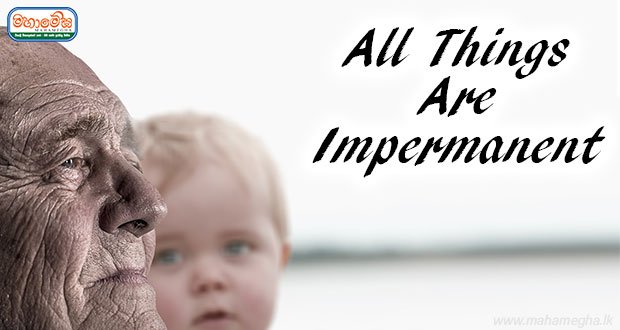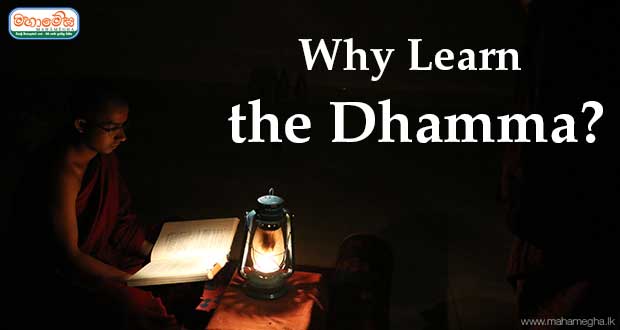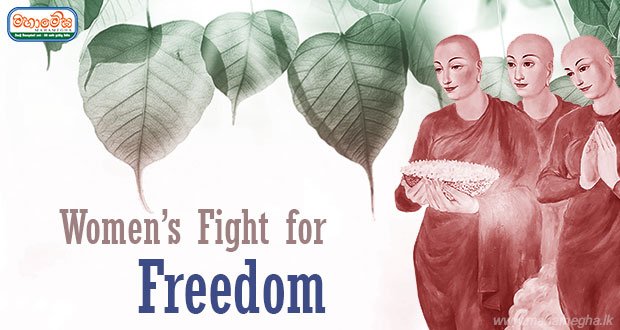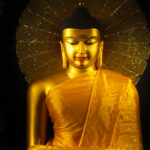One should diligently practice virtue in Lord Buddha’s path. Here in this world, well-practiced virtue brings all success.
…Virtue is the foundation and base for wholesome qualities. Virtue is like a mother of all good qualities. Virtue is the foremost of all good qualities. Therefore, one should make one’s virtue pure.
The mind is like the great ocean. Virtue is like its beach. Virtue, the dock of merit of all Buddha’s, gives joy and discipline. Therefore, one should make one’s virtue pure.
Virtue is an incomparable power. Virtue is a supreme weapon. Virtue is the best ornament. Virtue is a marvelous armor.
Virtue is a mighty bridge. Virtue is an unsurpassed perfume. Virtue is the best scent which spreads in all directions.
…One can achieve victory among humans and gods through one’s virtue and wisdom.
(Extracts from Verses of venerable Arahant Seelava)
‘Seela’, ‘Virtue’, or ‘protecting precepts’, is the purity of verbal and bodily actions. To some extent, it is a purity of life. It is the purity of one’s character. But a pure character is gained or practiced by a very small number of people in this world. Abstaining from killing living beings, abstaining from stealing, abstaining from sexual misconduct, abstaining from false speech, abstaining from taking intoxicating drinks and drugs, are the five precepts taught by the Lord Buddha for lay disciples to practice.
• How rare are virtuous people?
One day the Blessed One took up a little bit of soil in his finger nail and asked bhikkus which is more; the soil in Lord Buddha’s finger nail or the soil in the earth.
Bhikkus replied,
“Venerable Sir, compared to the great earth, that little bit of soil is not calculable, does not bear comparison.” Our Great teacher explained, “So too, Bhikkus, those beings who abstain from killing living beings,… abstain from stealing,… abstain from sexual misconduct,… abstain from false speech,… abstain from taking intoxicating drinks and drugs…, those who are virtuous, are very few. Most of the beings are not virtuous.”
• Why do we have to protect precepts?
The purpose of practicing virtue is to eradicate regret. A person may hide all his/her bad deeds to others, but he/she himself/herself knows what he/she has said and done. No one can escape from one’s own conscience. Every fault will leave regret in the doer’s heart.
Idha thappati – Here, in this life, he regrets.
Peccha thappati – He regrets hereafter.
Katha papo ubhayattha thappati – One who has done evil, will regret in both worlds.
Papam me katanti thappati – ‘I’ve done evil’ he’ll regret.
Bhiyyo thappathi duggatim gato- He’ll regret more and more having gone to a bad destination.
Lord Buddha advised us to practice virtue seeing the bad results of evil.
• What are the bad results of un-virtuousness?
1. An un-virtuous person will lose much wealth because of heedlessness.
2. She/he will gain a bad reputation.
3. Whatever assembly she/he approaches, she/he will approach it timid and disconcerted.
4. She/he will die confused.
5. And with the breakup of the body, after death, she/he will be reborn in hell.
The Lord Buddha saw those who engage in killing living beings, are reborn in hell in the next life. Due to a previous good karma if he comes back to the human state, he will gain a short lifespan. Those who injure or harm living beings will have many illnesses when they are born in the human world.
The result of stealing is the loss of wealth by fire, floods or any other reason. The result of sexual misconduct is the loss of love and peace in family life and having enemies. As results of false speech, a person will be falsely accused.
The results of taking intoxicating drinks and drugs are, being unable to bear mental impulses, become easily distressed and mentally ill. He/she may even become mentally retarded.
So if one protects those precepts throughout one’s life, with confidence in the Noble Triple Gem, he/she will never fall into these dangers.
• Are there any special benefits in protecting virtue?
Yes, definitely, there are.
1. The virtuous person will accumulate wealth because of heedfulness.
2. She/he will gain a good reputation and fame.
3. Whatever assembly she/he approaches, he will approach confidently and composed.
4. She/he will die unconfused.
5. And with the breakup of the body, after death, she/he will be reborn in heaven.
When the virtuous person is reborn in human state, he will get a long lifespan, as a result of abstaining from killing living beings. He/she will be healthy as a result of abstaining from hurting beings.
His/her wealth will be protected from disasters, thieves and foes, without being destroyed, as a result of abstaining from stealing.
He/she will neither be victim to enemies nor will he lose love and peace in family as a result of abstaining from sexual misconduct.
He/she will never be falsely accused as a result of abstaining from false speech. His words will be worthy to be treasured in others hearts.
And because of abstaining from taking intoxicating drinks and drugs, he/she will never be born as a mental retarded person but a very intelligent person.
• Are these the only benefits and aims of virtue?
No. We discussed that virtue results a regretless life. One who is regretless can easily concentrate one’s mind. Thereby, virtue is the proximate cause for right concentration. Right concentration is the proximate cause for the knowledge and vision of things as they really are. It is the proximate cause for disenchantment and dispassion. It is the proximate cause for the knowledge of liberation.
Further Lord Buddha said, an intelligent person established in virtue, develops mind and wisdom; ardent and astute he untangles the tangle in life and frees himself from all suffering, embracing the supreme bliss of nibbana.
• In which way should we protect virtue?
One should protect virtue, laying down his life for it and with the intention of realizing the Four Noble truths in this Gautama Buddha’s dispensation. Whatever happens, one should not break precepts, for himself or for any other. The reason is that every bad deed will give bad results, whether we do it with pleasure or displeasure. Even if we do something bad as a joke, its results will not be simple. By the time we reap the results of what we have done, no one can save us, we alone have to suffer the consequences of our actions.
If we gather merits, if we are virtuous, we can rejoice here. We can rejoice hereafter. We will rejoice in both worlds, seeing the merits we’ve made.
If we protect precepts laying down our life for virtue, it is the mighty bridge to heaven. It is the mighty bridge to the Supreme Bliss of Nibbana.
Mahamevnava Anagarika Monastery














Recent Comments